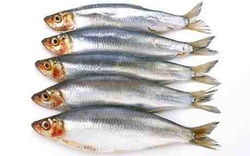 This week saw the publication of another large clinical trial investigating the effects of dietary supplementation with omega-3 containing fish oil to prevent cardiovascular disease. The use of fish oil to promote good health goes back many hundreds of years however interest grew in the 1960's when there were reports of very low levels of coronary heart disease in Greenland Eskimos. This was attributed to a diet that was rich in marine omega–3 fats and led to the hypothesis that omega-3 supplementation would prevent cardiovascular disease. Today omega-3 is synonymous with good health and supplements are taken widely in the belief that they will prevent heart disease. There has been a large amount of clinical research but much controversy remains as to the effectiveness of these supplements. So what is the evidence that supplementing the diet with fish oils prevents heart disease and are we overlooking other important aspects of the Eskimo diet which might be responsible for their good health? Does fish oil prevent high risk people getting heart disease? A recent study published in NEJM randomised 12,513 patients to take either omega-3 supplements or placebo. The trial subjects had multiple cardiovascular risk factors or clinical evidence of vascular disease. After 5 years 11% of subjects had experienced cardiovascular events but there was no effect of omega-3 treatment. Does fish oil prevent recurrent heart disease after heart attack? In the GISSI-P study diet was supplemented with omega-3 rich fish oil in people who had recently had a heart attack. Over 3.5 years there was a difference of just 1.3% in favour of fish oil in the combined end point of death, non-fatal MI and non-fatal stroke. This study was conducted about 20 years ago and the treatment of patients post MI is now very different. Only 40% of patients were on beta-blockers or ACE inhibitors and only a 25% underwent stenting or had coronary bypass surgery. Clopidogrel, now almost always used after an MI, was not available at that time and the statin mega trials had not been published so at the start of the trial only a few patients were treated with these drugs. The overall effect of omega-3 supplementation was small and of low clinical significance. This was further confirmed in a the more contemporary Alpha-Omega Study published in 2010 which again showed no benefit with omega-3 fatty acid rich margarines. A Cochrane systematic review of trials included 36,913 participants and 41 cohort analyses. Pooled trial results did not show a reduction in the risk of total mortality or combined cardiovascular events in those taking additional omega-3 fats no significant effect of omega-3 fats. Although omega-3 supplementation was originally recommended by NICE most local cardiac networks and guidelines groups have strongly indicated that omega-3 is not a high priority to be prescribed for patients  Why doesn't omega-3 prevent heart disease? Whilst there is biochemical and observational research to suggest that omega-3 fatty acids are beneficial to prevent cardiovascular disease the large controlled clinical trials have been very disappointing. The original fish oil hypothesis was formed following the observation of a very low level of cardiovascular disease in Inuit Eskimos. The diet of an Eskimo would be regarded, at first glance, as extremely unhealthy. It contains a large amount of animal protein and fat. The amount of carbohydrate and sugar is very low. The Eskimo diet is like that of a carnivorous animal and very rich in omega-3 fatty acid. Most researchers have focused on the high omega-3 content of the diet forgetting the high fat and protein content. Because of the link between cholesterol and fat to coronary artery disease, the lack of carbohydrate and sugar in the diet were quietly forgotten. So to pick on one component, albeit present at high level in the diet, and expect that supplementing it into a completely different high carbohydrate Western diet would lower heart disease is not particularly credible. Recently the book by Dr John Yudkin - "Pure, White and Deadly has been republished. The thesis of this book was that the rise in coronary heart disease is due to the increased consumption of sugar in the Western diet rather than the traditional belief that it is related to the consumption of saturate fat. It is interesting that the Eskimo diet was very rich in fat and meat but low in sugar. Perhaps if we want to obtain the same low risk of heart disease of the Eskimos we need to follow their marine diet more closely. References: n–3 Fatty Acids in Patients with Multiple Cardiovascular Risk Factors: The Risk and Prevention Study Collaborative Group N Engl J Med 2013; 368:1800-1808 May 9, 2013 DOI:10.1056/NEJMoa1205409 n–3 Fatty Acids and Cardiovascular Events after Myocardial Infarction Daan Kromhout, M.P.H., Ph.D., Erik J. Giltay, M.D., Ph.D., and Johanna M. Geleijnse, Ph.D. for the Alpha Omega Trial Group N Engl J Med 2010; 363:2015-2026 November 18, 2010 DOI: 10.1056/NEJMoa1003603
0 Comments
|
Dr Richard BogleThe opinions expressed in this blog are strictly those of the author and should not be construed as the opinion or policy of my employers nor recommendations for your care or anyone else's. Always seek professional guidance instead. Archives
August 2023
Categories
All
|
 RSS Feed
RSS Feed

